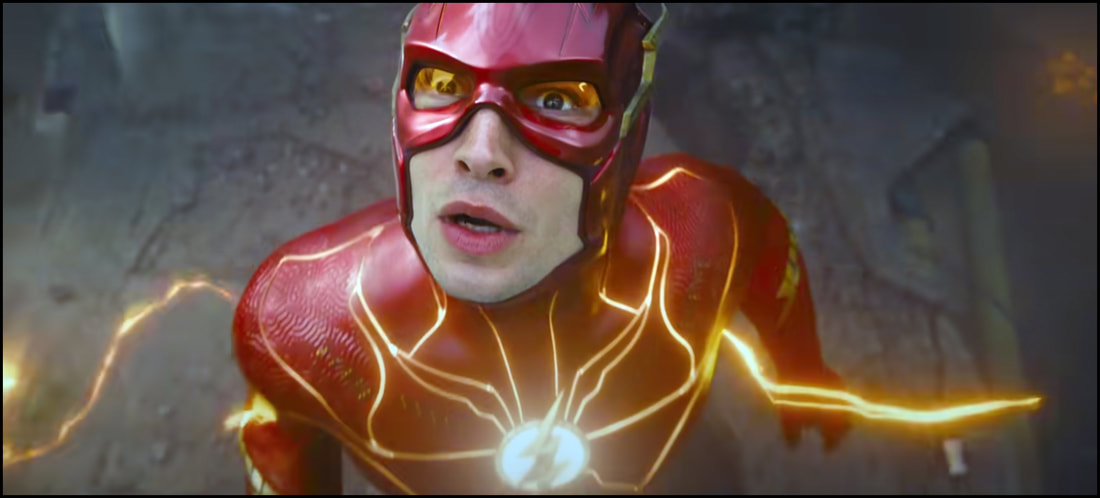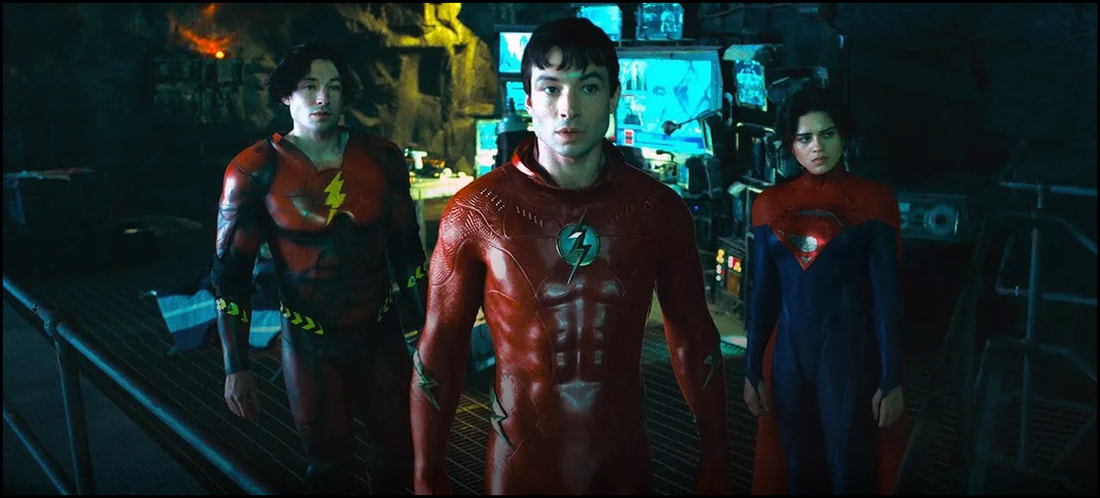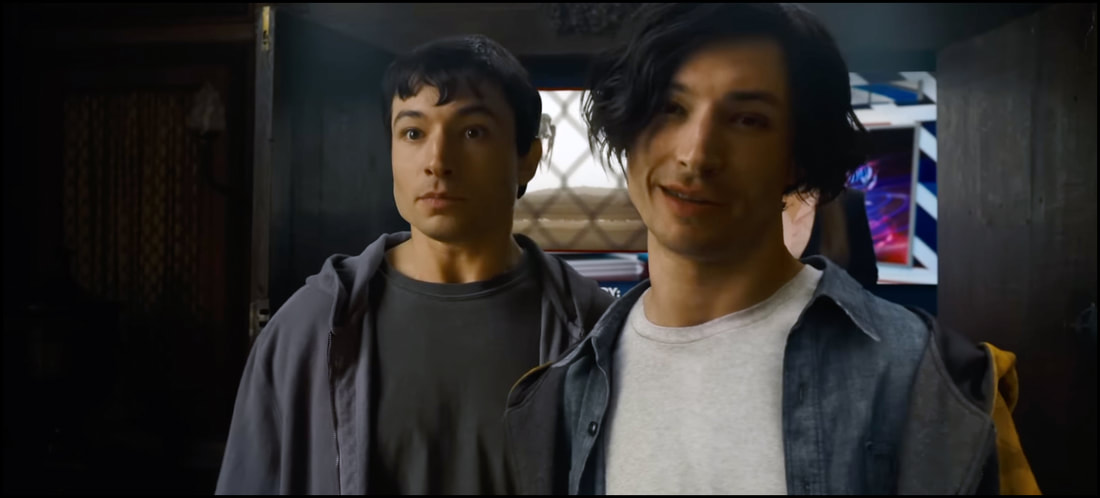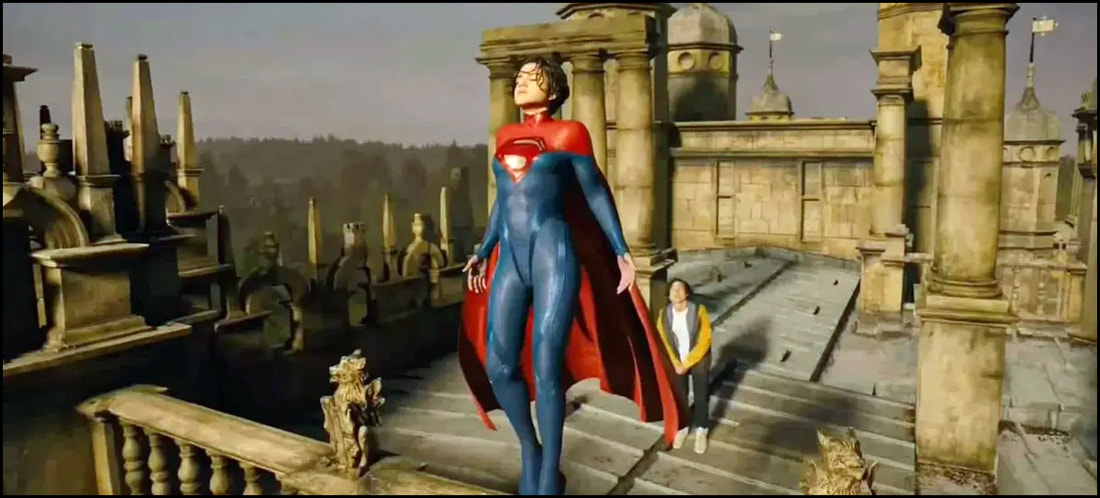No, no, and no: I’ll not apologize for it. I’ve mentioned in this space – far too many times for me to ever recall – that I grew up reading DC Comic book titles. I did read some of the Marvel stuff way back in the early 1970’s and off-and-on again in the 1980’s, but they just didn’t tickle my particular fancy the way the DC stuff did. Some of that was owed to the writing, and some of it was more likely owed to the cast of characters; DC’s heroes just had a way of sticking to situations and circumstances that just interested me a bit more, so I was glad to hang out mostly in the pages of Superman, Batman, and a few others when covers looked inviting. Such was the life of the great American teen growing up in the middle of nowhere, USA.
Still, I never much cared for The Flash. He wasn’t a bigger-than-life player in his own book nor in the wider DC Universe, at least not so much as I saw him. More often than not, he felt like a hero kept around for a bit of light entertainment. Always quick with a bit of humor or a wry commentary on the state of things, he played a supporting role in a few of the team-up titles, never quite emerging so much as a force to be reckoned with but a welcome tag-a-long who made a wild ride complete with a few additional laughs. Occasionally, writers gave him a bit more to do, though they never quite shrugged off what I saw as a bench player status, called in precisely when doing something quickly was really all that was needed.
Well …
He’s finally come to the silver screen in his very own theatrical adventure. The Flash (aka The Flash: Worlds Collide) isn’t exactly setting fire to the box office in the U.S. or abroad, though I’ll bet the suits at Warner Bros. seriously thought they had a hit on their hands. I have my own thoughts on why the film was probably always destined to an underperformer, and I’ll be happy to explain after the break …
(NOTE: The following review will contain minor spoilers necessary solely for the discussion of plot and/or characters. If you’re the type of reader who prefers a review entirely spoiler-free, then I’d encourage you to skip down to the last few paragraphs for the final assessment. If, however, you’re accepting of a few modest hints at ‘things to come,’ then read on …)
From the film’s IMDB.com page citation:
“Barry Allen uses his super speed to change the past, but his attempt to save his family creates a world without super heroes, forcing him to race for his life in order to save the future.”
Granted, there could be a flick here or there that somehow managed to work out entirely well for all involved, but about as long as time travel stories have been around there has been one single unifying rule to the vast majority of them: do not alter the past, or you put damn near everything into jeopardy. From comedies to the more serious Ray Bradbury inspired narrations, audiences have been cautioned with one yarn after another trying to properly recount how even the smallest alterations have led to some of the most astounding outcomes in the (new) present and the distant future. So while The Flash’s singular exploration of this common theme that appeared in 2011’s Flashpoint miniseries may’ve been a tale quite well told, I’d argue that there still was nothing all that revelatory about it in the grand scheme of time travel adventures.
However … just because something is well told doesn’t mean that audiences haven’t seen it before, and – try as hard as director Andy Muschietti and screenwriters Christina Hodson and Joby Harold might – there still just wasn’t anything new added to the string of comic book films that have kinda/sorta dabbled in territory not all that far from 2023’s The Flash. Heck, Marvel’s Infinity War (2018) and Endgame (2019) graced the big screen only a few short years ago, and Spider-Man: No Way Home (2021) is still making the rounds on pay cable. Did the suits at DC really think that – with so many strikingly similar ideas – The Flash was going to appear even remotely novel to audiences at this point? Yes, yes, and yes: I get that the story might have a different fabric and some flashier colors; but at the end of the day it’s still spandex for spandex’s sake, and all too much of Worlds Collide has been done and seen before much too recently … even in The Flash’s own damn universe!
In case folks have missed it, the DC Speedster just concluded a nine-season run on television, and quite a bit of its last few confusing seasons, in fact, explored the smaller and wider consequences of temporal and dimensional manipulation perhaps to the death of the writers’ rooms’ better ideas. While I won’t get into any serious discussion of the TV franchise in this space, I will say that, as an effect of investing far too much time in the very same ideas Warner Bros. is now trying out in this motion picture, the television show made less and less coherent sense in the past few seasons. At one time, I – and I think many other viewers – would’ve told you that the Grant Gustin headlined show on The CW was one of the better superhero distractions in every universe; and yet the introduction of greater and greater time travel scenarios killed the ‘feel good’ vibe of the program, ultimately sending it into narrative oblivion. Though showrunners ended it of their own accord, I suspect even they could see the Butterfly Effect well in motion and opted to get out while the getting was good.
So … besides going where audiences had already gone before, what capable shoulders could The Flash’s producers rest the story on?
Now, this isn’t to say that folks weren’t interested in Keaton, specifically, but banking so much of the nostalgia factor on pumping up the returns to a picture that cost in excess of $200 Million was a pretty big risk … especially seeing that such wistfulness hasn’t exactly been performing well fiscally as of late. For example, popular studios like Pixar and Walt Disney have been releasing one theatrical dud after another (how’s nostalgia looking for them?), and even the recent live action incarnation of The Little Mermaid (2023) appears to be headed for fiscal disaster. The slate of Marvel films has been on the commercial decline; while still posting some respectable box office receipts, that franchise’s chief downside has been budgets ballooning out of control. And has anyone with a brain been watching the lessened interest in the forthcoming Indiana Jones spectacle? The Dial Of Destiny is Harrison Ford’s third swan song with a character once epic in pop culture, and now he’s polling more and more like a grandfather long since put out to pasture.
Keaton’s Batman (1989) and his follow-up – Batman Returns (1992) – were popular comic book films from their day; and those films – along with Superman: The Movie (1978) and Superman II (1980) – are definitely callbacks to a time wherein both DC and the WB knew a bit more about crafting such films explicitly for the silver screen. I’ve mentioned before that there’s a great essay in a non-fiction book titled The Many Lives Of The Batman (published in 1991) that details an incredible amount of behind-the-scenes build-up that both companies engaged in privately and jointly to establish trends and cement hype around the Caped Crusader in preparation for the first Keaton adventure; but it would seem that today’s Hollywood thinks that merely churning out one superhero film after another is all that’s required. Again, that wouldn’t appear to be a recipe for success for Marvel presently, and I think many would agree.
And about Keaton?
While I think that there was legitimate interest in seeing the actor return to the theatrical world of Batman, I strongly believe it was in a different role: TV’s Batman Beyond delivered audiences with a younger, hipper, even far more tech savvy incarnation of the world’s greatest detective in the guise of Terry McGinnis, a whippersnapper an aged Bruce Wayne tasked with wearing the Bat-mantle into tomorrow. In fact, it was the elderly Wayne who spent time behind-the-scenes both training and actively counseling the young hero – in real time, via Bat-radio – on his various missions against supervillains new and old. This is where I suspect fandom wanted to see an evolution for Keaton as he remains one of the more popular actors to inhabit the original suit. Whether or not that opportunity ever comes about looks increasingly unlikely with – ahem – The Flash’s current failure, and I find that very sad, indeed.
It's this constant executive mis stepping – this ever-pervasive corporate error in judgment – that plagues The Flash’s first and likely last screen outing.
Still, this is not to say that The Flash was a complete failure. It has some sequences – some of its various bits and pieces – that work quite well and suggest that perhaps out there in the midst of time and space there, too, is another version of the story that’s been embraced and maybe even heralded as the gamechanger Miller, Muschietti, and even DC’s resident head honcho (the controversy-laden James Gunn) claim this one to be. Keaton’s contributions – while nice – all felt a bit forced. The duelling Barrys managed to squeeze in some clever banter in enough places to highlight that violating the Prime Directive of time travel – never ever interact with yourself – wasn’t as uninspired a plot device as it otherwise could’ve been. And Sasha Calle suited up quite spiffily in the role of Kara Zor-El (aka Supergirl) and practically stole the picture in what should be an introduction to an all-new iteration of that Kryptonian descendant but will likely never see the light of day.
The Flash (2023) was produced by DC Comics, DC Entertainment, Warner Bros., and a few more participants. (Those wanting a full accounting can find it on the film’s IMDB.com page.) The film is currently playing theatrically all across America. As for the technical specifications? While I’m no trained video expert, the flick is full of some very good – and some not so good – special effects work; sorry, folks, but I’ve long complained that comic book films more and more look like video games on the silver screen, and I’m glad that you’re all finally catching up with me.
Recommended.
About the best thing that I can say about The Flash (2023) is that – on one level – it’s a perfectly respectable popcorn movie … but that’s also about the worst thing I can say. Thankfully, the cast and crew mostly avoided delivering the usual origins’ style storytelling, mostly relegating that stuff to the background and, instead, rushing face first into something worth talking about … like Barry’s almost unintentional destruction of time, the universe, and everything. Alas, too much of it was the substance of dreams explored before, and what survives is likely to be the end of Miller’s time in the wider DC Universe. Not a complete failure but one that might be talking about for ages … if there is a Zeus.
-- EZ





 RSS Feed
RSS Feed